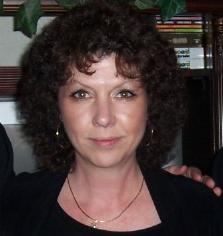Helping our next generation of Interpreters find their way.
by Phyllis Bullon on 09/22/12
We are a profession
built on the shared language of the Deaf Culture, a culture that values
reciprocity second only to the value they hold for their language. How
odd that the people who are earning their living based on the language
and culture of the Deaf struggle to accept one of the core values. We
need to perpetuate the ideas of language and reciprocity within our
profession in order to honor the values of those we serve. Following the
Code of Professional Conduct, we find the mandate to demonstrate
respect for colleagues and our outline for professional behavior. It is
valid.
Yet some interpreters are "territorial" when it comes to working with the newbies. The territorial issues are better than they used to be...at least here in this area, but the competitive edge for the client still exists. BUT:
If one uses the formula of U.S. population: 308 million in 2010 census X
8.5%= approximately 36 million Deaf and Hard of Hearing, with 26
million of those either fully dependent on sign or using sign for
clarification of information (this is based on the rough equation used by Deaf and Hard of
Hearing Services in Texas- which breaks down to about 6 million Deaf and Hard of Hearing in Texas. From that number, approximately 2.5 million depend on signs and approximately 1.5 million use sign for clarification in Texas alone!), or the FCC's and TDI's most recent estimate
of 48 million Deaf and Hard of Hearing citizens in the U. S. alone who
depend on captioning, or the main argument for captioning on the world
wide web: is that the world population of Deaf and Hard of Hearing who
require captions for potential internet access is estimated to be around
700 million by 2015. We just begin to grasp the magnitude of our
profession.
Another factor to consider is that there are only approximately
18,000-20,000 certified interpreters nationwide (USA). That is
interpreters who hold RID, NAD, NIC, Texas BEI, and State Quality
Assurance certifications. Texas has roughly 1600 of these certified interpreters. The numbers definitely show that there are
enough Deaf clients to go around.
Instead of being competitive/territorial/superior, we should be
perpetuating the education of our future generations of interpreting
service providers. We need to remember that it is not always the most
educated, "superior" interpreter that is preferred by the Deaf
community, but the one who has a Deaf heart and respect for the people
and culture that we serve.
Those interpreters who are truly "superior" are those who think of
others and think of providing service to future generations, sharing
their knowledge and skills to benefit both the up and coming interpreter
and the Deaf community of tomorrow. The Dallas/Fort Worth Metroplex has been blessed with several of these superior interpreters.
We succeed and make our mark as
individuals by leaving ourselves, our skills, our knowledge... on the
hands and hearts of our trainees. I have been honored to work with a large group of interpreters here in Texas who place the next generation as priority for our future. That is the legacy I want to leave
behind.





